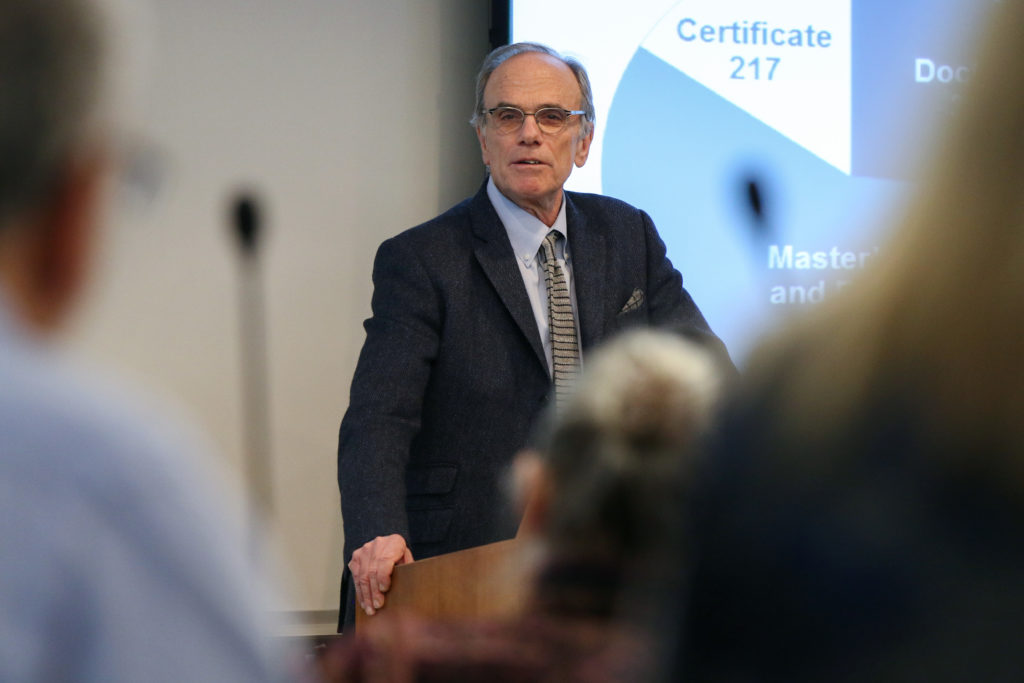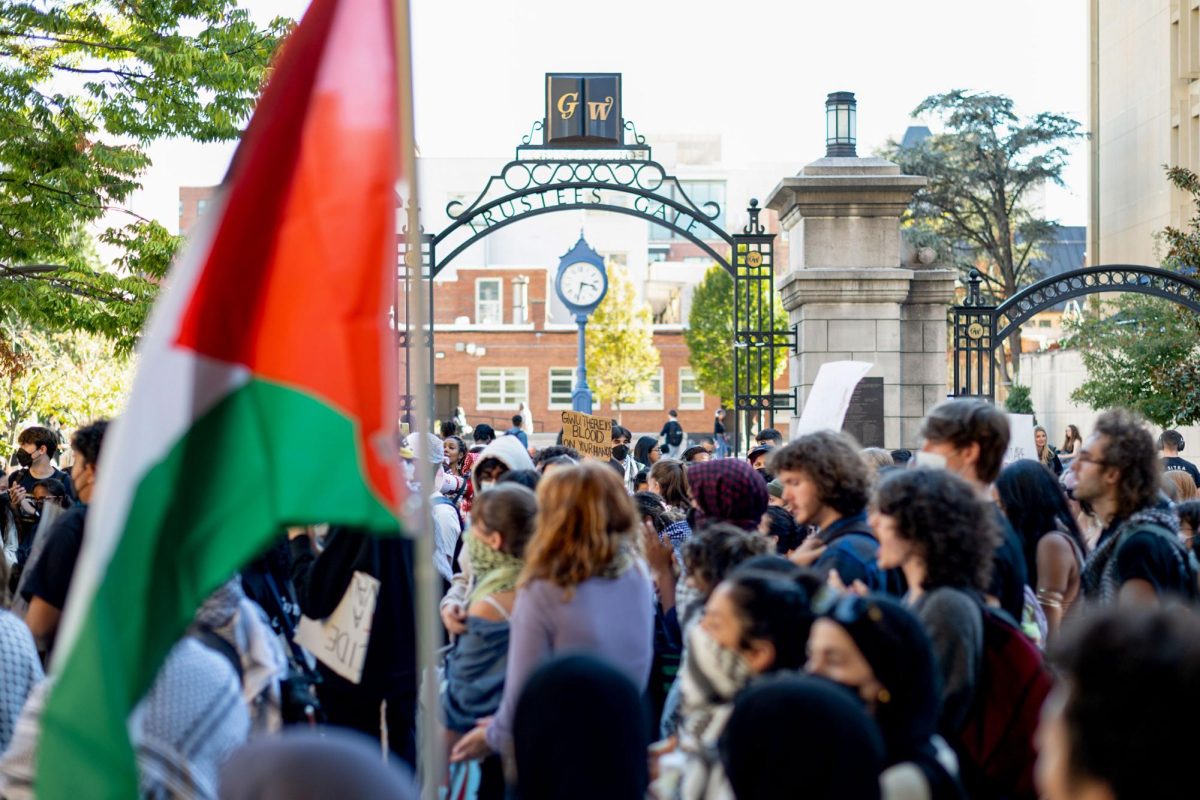This article is biased. That’s because “there is no such thing as objectivity in news coverage,” said Nathan Guttman, a Washington correspondent for Israel’s Ha’aretz Daily Newspaper, at a forum on media and public diplomacy at the Law School Monday.
Guttman explained while journalists can strive for balance and objectivity in their reporting, the nature of language makes it impossible for the media to be completely objective.
More than 150 students and faculty members attended the panel, addressing the power of communication and language on government decision and perceptions as it relates to the present Israeli-Palestinian conflict.
The panel also included former State Department and Clinton White House Press Secretary Mike McCurry and Mark Regev, spokesman for the Israeli Embassy. GW professor Bernard Reich moderated the event.
“Language in that conflict is now embedded, for over a decade, on nuances of sacred texts” which include everything from Biblical scripture to United Nations resolutions, McCurry said.
He said “fistfights arise” because people do not take into account others’ sensitivities when discussing the Middle East.
“Until we break out of the bond of the language that encumbers the language of these public issues…it’s hard to see what kind of hope there will be for the future of the region,” McCurry said.
In his remarks, Regev focused on bias in the media and the ability of journalists to cover both sides of the Israel-Palestine issue fairly.
“The job of the media isn’t to be pro-Palestinian…(or) pro-Israeli,” Regev said. “The job of the media is to be right…(and) critical.”
Panelists were asked to discuss the impact of freedom of speech in Israel and Arab countries.
Regev said that while Israeli citizens have freedom of speech, Palestinians live in a “very non-transparent, very disciplined, very dictatorial society” creating a “fundamental imbalance” of opinion in the Middle East that “makes it difficult for the journalists to do their jobs correctly.”
Guttman discussed how reporters’ word choices influence the conflict and the way it is perceived.
For example, Israeli and American outlets will commonly refer to an individual as a “suicide bomber” or “terrorist,” while an Arab outlet like Al-Jazeera will refer to them as a “martyr.”
The event was principally organized by the Israel Peace Project and co-sponsored almost a dozen other organizations, including the Law School Jewish Student Association, the College Democrats, the College Republicans and Hillel.
Audience members had a chance to ask the panelists questions, which were screened by Reich.
“A good reporter…has to know how to go below the official spin,” Regev said, questioning the extent to which the American press is doing this in Arab countries.
“Not everyone does the digging,” he said. Regev cited a purported massacre of Palestinians by Israeli soldiers in Jenin. Human rights groups discovered no evidence that the massacre occurred.
Guttman, who has experience in both print and broadcast journalism, expanded on factors which contribute to media bias.
“The main reason for bias isn’t ideological–it’s practical,” he said. “A simple story is easier to understand and to broadcast than a complicated story.”
Sohana Punithakumar, a junior at Wesleyan University who attended the symposium while visiting friends at GW, said she felt comfortable at the event. She said similar events at her universtiy are often more “volatile.”
“(This was the) first time I’ve ever heard anything from the American media standpoint,” said sophomore Rebecca Horwitz.
“I made me think about the fact that maybe it’s a good thing that there are biases in the media,” Horwitz said. “(If a news piece) portrays one side as the underdog or one side as the aggressor,” people are more likely to get engaged in the issue.
Absent from the panel were representatives from a Palestinian or Arab perspective. Horwitz said that while the event would have been much more informative if a Palestinian representative was present, it would have changed the focus of the symposium.
Sophomore Alex Berger, chairman of IPP and a coordinator of the event symposium, said the event was “as inclusive as possible.”
Berger said the event was a success, citing high attendance, a diverse crowd, and good publicity and questions.
“(The questions asked) made our panelists think and made the audience think,” he said.






